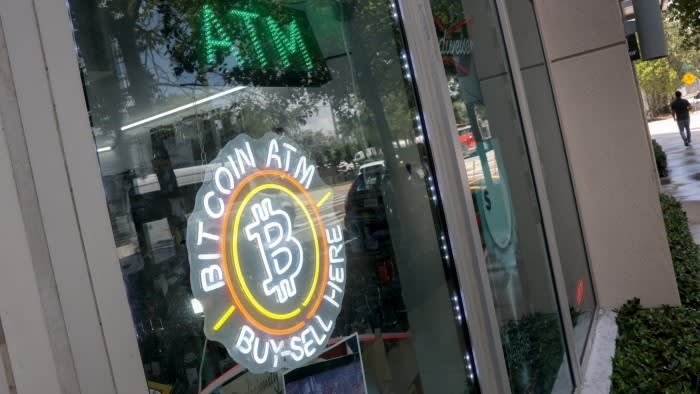
Stay informed with free updates
Simply sign up to the Cryptocurrencies myFT Digest — delivered directly to your inbox.
The head of New York’s top financial watchdog has backed calls for UK and US crypto companies to gain access to each other’s markets as she revealed plans to step down.
Adrienne Harris, head of the New York Department of Financial Services (DFS), told the Financial Times that regulatory co-operation under a passporting scheme was a “really interesting” opportunity following an agreement on a UK-US task force on “markets of the future”.
Speaking ahead of announcing her departure on Monday after four years leading the DFS, Harris said the “borderless nature” of the crypto market made it more important for global regulators to co-operate and align standards.
The DFS regulates many of the world’s biggest financial institutions, including Goldman Sachs, Deutsche Bank and Barclays, as well as some of the largest crypto asset providers such as Coinbase and Circle.
US Treasury secretary Scott Bessent and UK chancellor Rachel Reeves announced plans for a US-UK task force earlier this month, but gave little detail on what it would focus on.
The body, to be chaired by officials from both countries’ Treasury departments, will consult with industry executives and report within 180 days.
Asked if this could ease access for US and UK crypto companies to each other’s markets, Harris said she “can’t speak for how the folks in DC are thinking about what might come of this co-operation, but I think that passporting could be really interesting”.
The cryptoasset sector has been lobbying officials to examine a US-UK scheme to allow companies regulated in one market to operate in the other without needing a full authorisation process.
“Co-ordinated regulation, including the potential for digital asset passporting, would enhance investor protection, cut compliance costs and make cross-border markets far more interoperable,” said Simon Jennings, executive director of the UK Cryptoasset Business Council trade body.
Harris said the DFS already had a secondment scheme with the Bank of England to exchange staff specialising in payments, crypto and stablecoins.
The UK operates an overseas recognition regime that accepts another country’s regulatory framework as equivalent to its own in specific sectors and allows companies to access its own market in return. The US gives similar “comparability” determinations to other countries.
The US has adopted a much more crypto-friendly approach under President Donald Trump, supporting the market’s push to become more integrated into mainstream finance and sparking a rush to launch stablecoins.
Harris, a former adviser to former US president Barack Obama, took a parting swipe at the Trump administration’s move to unwind many financial regulation policies of previous Democratic presidents, including cutting funding for the Consumer Financial Protection Bureau.
“You really shouldn’t have ideology in financial regulation,” Harris said. “You can protect consumers and support business at the same time; this can be mutually reinforcing.”
Harris said she had always planned to step down after four years, denying her departure was related to Trump’s re-election: “It is nothing to do with anything else going on in the country or in politics — zero.” Harris is being replaced on an acting basis by Kaitlin Asrow, head of research and innovation at the DFS.
Last year, the DFS agreed a settlement with Gemini Trust Company, a New York-based cryptocurrency exchange run by Cameron and Tyler Winklevoss, for it to return almost $2.2bn in digital assets to customers hit by the collapse of crypto-broker Genesis.
Harris said money laundering was one of the biggest risks from integrating crypto into the financial system, along with cyber security and fraud, but argued that allowing traditional institutions to engage with the crypto market could raise standards.
Separately, the DFS on Friday announced plans to allow the 100-plus companies it has subjected to a consent order as part of its enforcement action — including the Agricultural Bank of China, BNP Paribas and Standard Chartered — to seek a public acknowledgment that they have addressed the problem in a sustainable way.



